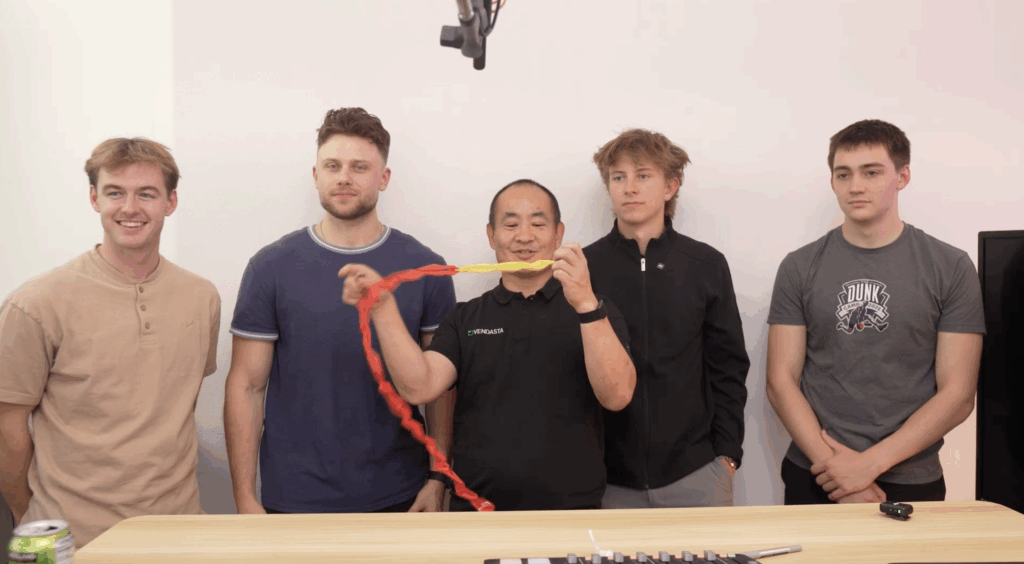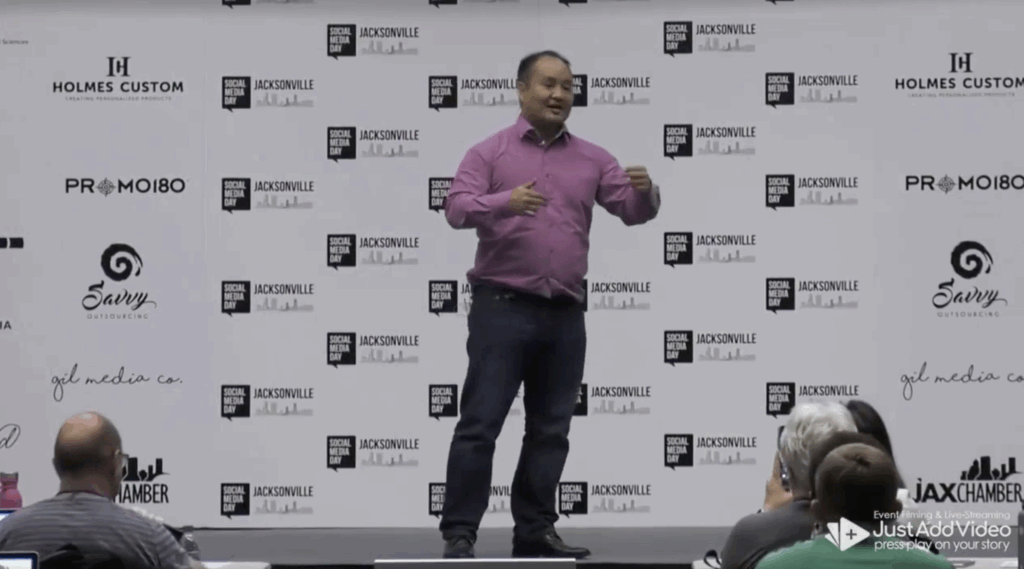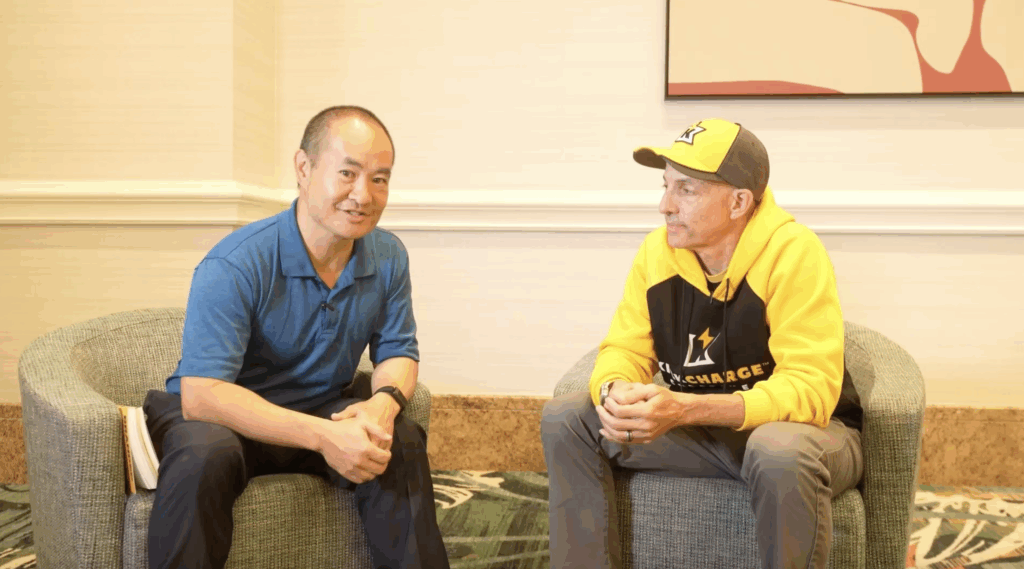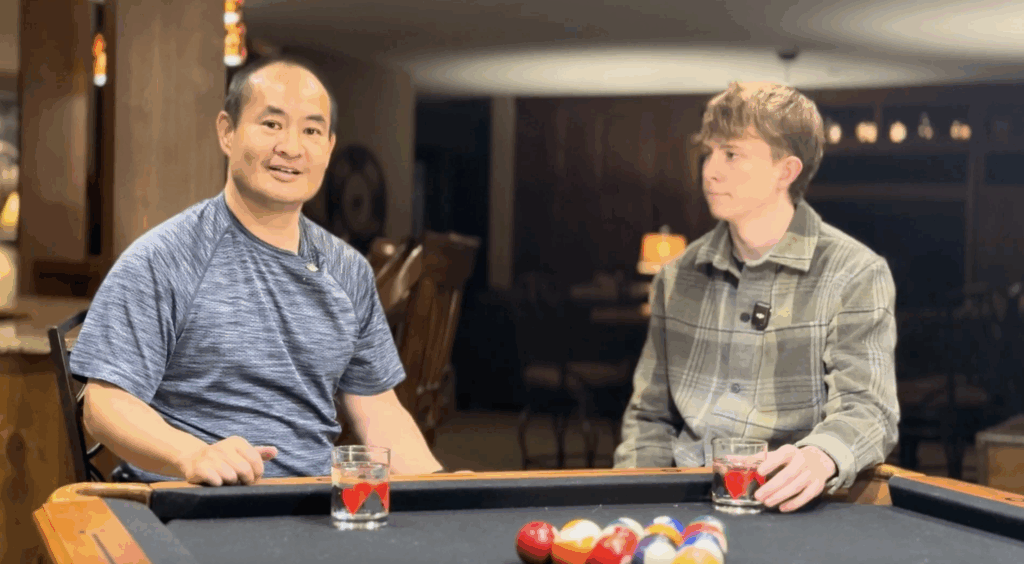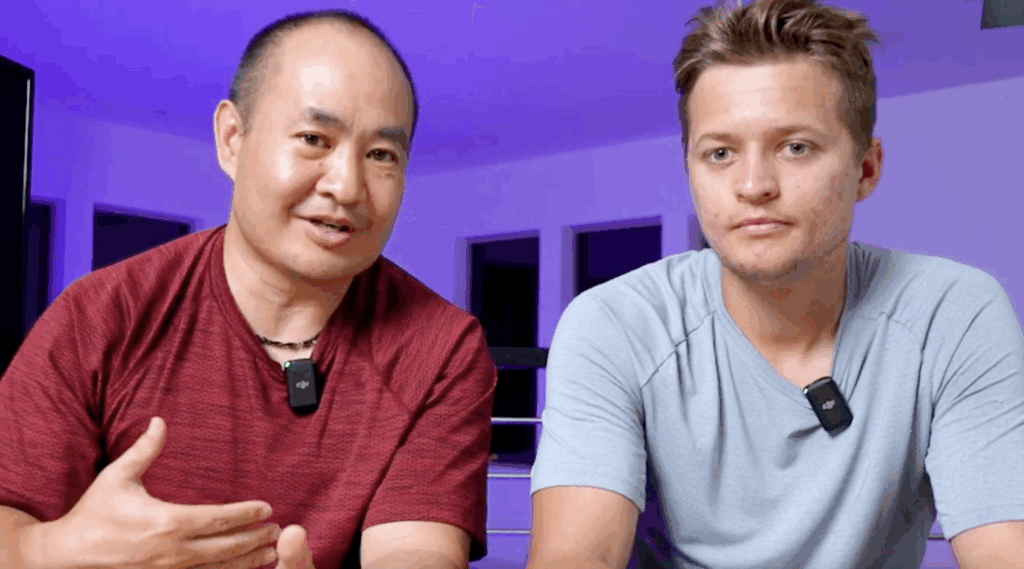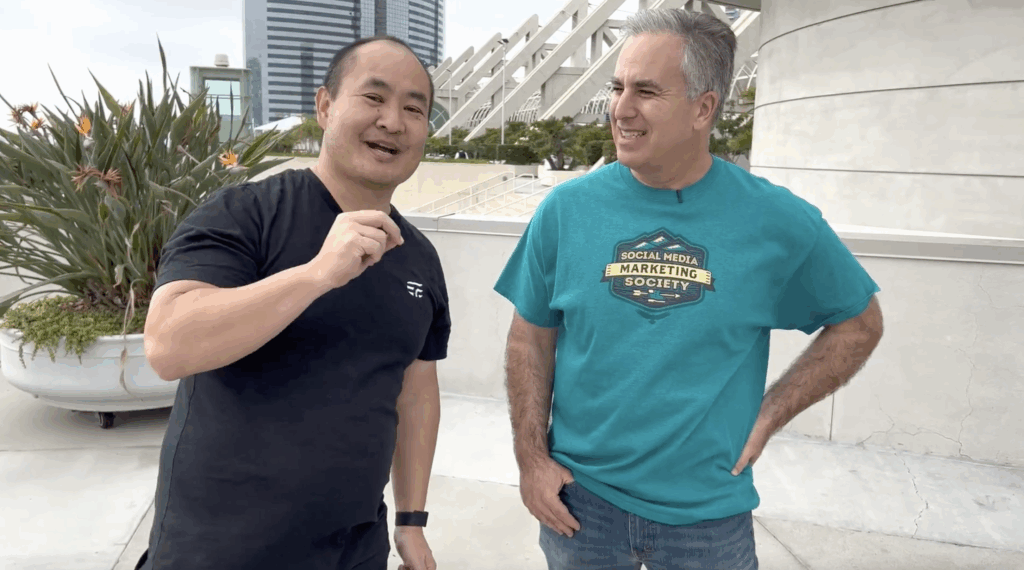The AI Content Process Every Business Should Be Using
A Practical Breakdown of the Content Factory System Taught at DigiMarCon
Most businesses aren’t short on things they could turn into content. What slows them down is what happens between recording something useful and actually publishing it. That gap is exactly what an AI content process is designed to eliminate.
At DigiMarCon, Jack Wendt and Dylan Haugen walked through the same AI-driven content workflow they’ve taught in professional and academic settings, including a recent session at Johns Hopkins University. The focus wasn’t on tools for their own sake, but on removing friction between recording something useful and getting it published consistently.
What follows is a practical explanation of that process, why it matters, and where most teams get stuck.
As Dylan Haugen put it during the session:
“If you can film the content, the rest of the way has become so easy with AI and these tools.”
Where Content Breaks Down in Real Businesses
Where Content Breaks Down in Real Businesses
In most organizations, content creation breaks down before it even begins.
- A meeting, call, or presentation happens
- No one records it—or the recording is never touched
- Editing, posting, and promotion are delayed or skipped entirely
The issue isn’t a lack of ideas or content. Businesses already explain valuable things every day. The real problem is two-fold:
- They don’t record what’s already happening
- Even when they do, the follow-through stalls
Every additional dependency—editors, approvals, posting schedules—adds friction. Over time, teams stop recording altogether because the hand-off feels too heavy. The cycle resets, and great explanations are lost.
The Content Factory: A Four‑Stage Workflow
The Content Factory approach treats content as a repeatable process instead of a one‑off task. Each stage exists to reduce friction, not add complexity.
1. Produce
The first stage is simply capturing what already exists.
Sales calls, Zoom meetings, internal trainings, and live presentations all contain explanations your audience already asks for. Recording them turns routine work into raw material.
No scripting is required at this stage. The goal is accuracy and usefulness, not polish.
2. Process
This is where modern AI tools make the largest difference.
During the presentation, Dylan demonstrated how a single recording can be:
- Cleaned up for clarity
- Transcribed automatically
- Split into long‑form and short‑form pieces
What used to take multiple roles and several days can now be done quickly by one person who understands the workflow.
The important shift here is speed. When processing is fast, content doesn’t pile up.
3. Publish
Processed content is then formatted for where people actually consume it:
- Articles for a website
- Long‑form video
- Short clips for social platforms
- Internal documentation or training
Publishing works best when it follows a checklist rather than a creative decision each time. Consistency matters more than novelty.
4. Promote
Many teams stop once something is published, but distribution determines whether the content is seen at all.
Promotion at this stage is not about aggressive marketing. It’s about making sure useful material is available in the places your audience already looks—search, social feeds, and internal knowledge bases.
AI‑assisted workflows reduce the effort required to do this repeatedly.
Why This Workflow Changes Output Without Lowering Quality
One example discussed during the video was used to illustrate where content workflows usually break down.
The example walked through what happens when each stage of content production is owned by a different person. Recordings sit in queues, tasks wait for handoffs, and small delays compound into long gaps between creation and publication.
The contrast was simple: when a single person understands and runs the full process—from recording through publishing and promotion—output and speed increase noticeably. Not because the work is rushed, but because the buffer zones between roles disappear.
This is also why learning the entire workflow matters. With current AI tools handling much of the mechanical work, it has become far easier for one trained operator to manage all stages without sacrificing quality.
Training People to Run the System
A recurring theme in the talk was that tools alone are not sufficient. Someone still needs to understand:
- What content is worth capturing
- How to preserve intent and tone
- Where each piece fits in a broader topic structure
This is the focus of High Rise Academy’s training model, which emphasizes process ownership rather than isolated tasks. The same workflow is often paired with structured personal‑brand or company websites—such as those built through partners like Local Service Spotlight—so search engines can clearly associate content with real expertise.
A Practical Starting Point
The simplest takeaway from the session was straightforward:
If something required explanation once, it will likely need to be explained again.
Recording it the first time reduces future repetition. With a clear process for handling the rest, content becomes a byproduct of normal operations rather than an additional burden.
That shift—not any single tool—is what makes the system sustainable.
What This Means for Local Service Businesses
For local service businesses in particular, this workflow solves a common visibility problem: expertise exists, but it is scattered across conversations, estimates, and internal meetings.
When recordings are consistently turned into published content and tied back to a clear online identity, search engines can better understand who the business owner is, what they specialize in, and why they are credible.
Next Steps
For most businesses, the limiting factor isn’t effort—it’s ownership.
Recording content is easy. Deciding who is responsible for turning that recording into published, promoted assets is where momentum breaks down.
One effective approach is to assign a single person inside the business to own the entire content workflow end to end:
- Capturing recordings consistently
- Processing them into usable formats
- Publishing them across the right channels
- Ensuring distribution actually happens
This is the role High Rise Academy is designed to train for.
Rather than spreading content responsibilities across multiple vendors or internal roles, businesses send a dedicated team member—often a young adult—to learn how to run the full Content Factory system using modern AI tools while maintaining brand voice and quality standards.
When paired with the right infrastructure, such as an authority-focused site built through Local Service Spotlight, this model centralizes digital marketing under one accountable operator and allows content to compound over time instead of stalling out between handoffs.
For businesses looking to improve consistency, clarity, and output without expanding headcount, training someone internally to own this system is often the most durable next step.

